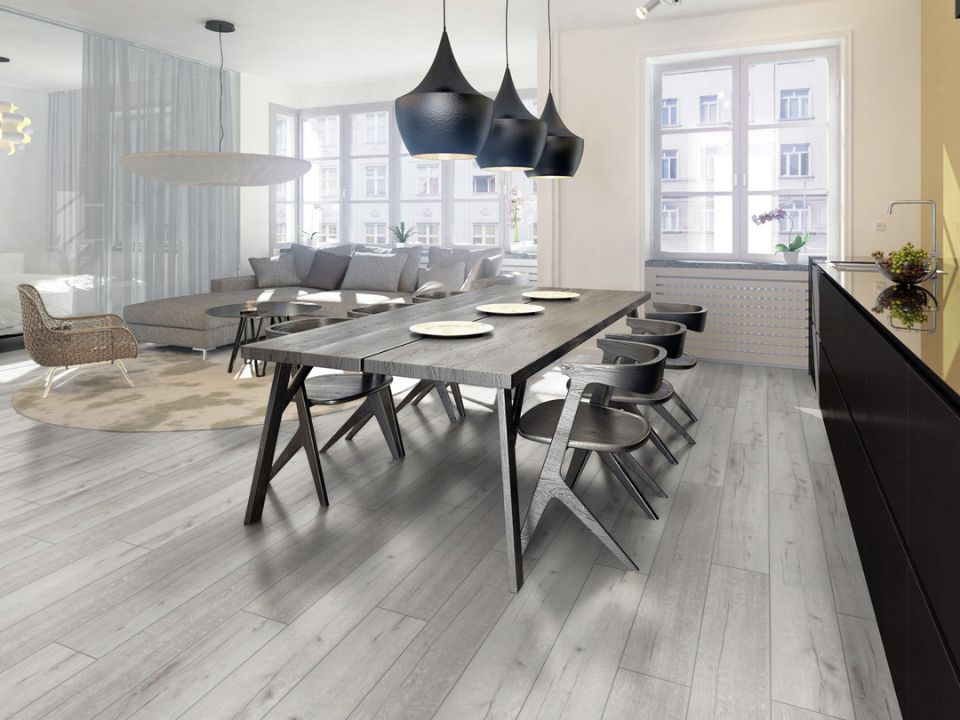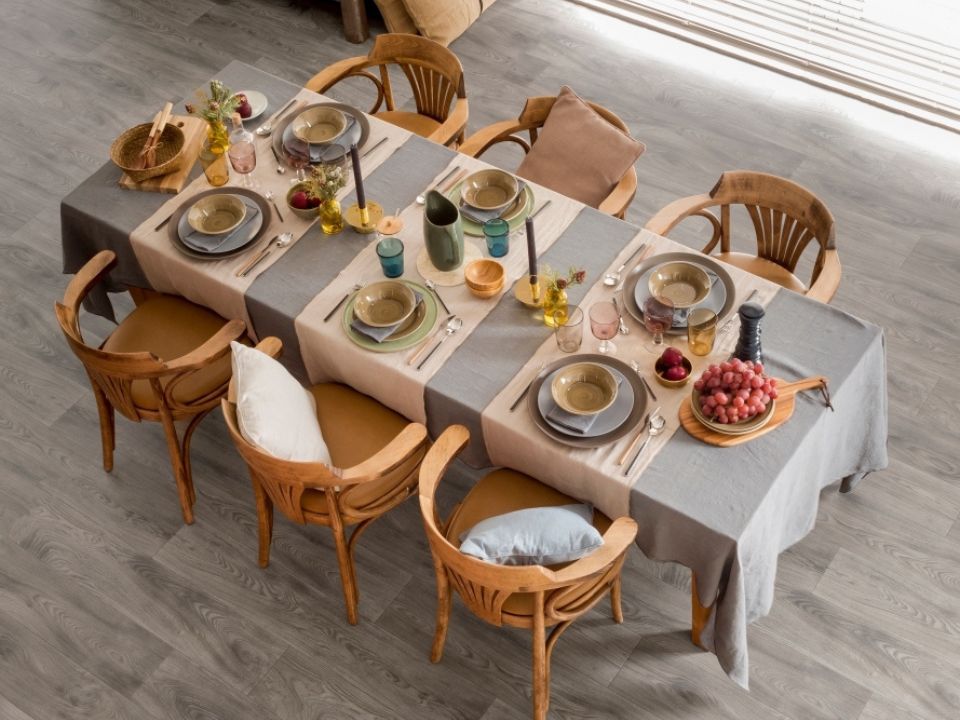
Vinyl Deco Ideas and Renovations
Towards a Greener Home: Best Eco-Friendly Flooring Options
Selecting the right construction materials is the initial step in crafting a sustainable future – from the ground up.
Whether it’s a formaldehyde-free floating floor or a hemp floor, there's a solution for your needs. In this article, we'll explore the best eco-friendly flooring options available on the market, and explain why these materials are considered sustainable.
Hemp flooring: a sustainable and renewable option
Hemp, a versatile plant experiencing a surge in cultivation within Quebec, holds considerable appeal. This is due to its ability to thrive without the need for pesticides, herbicides, insecticides, or chemical fertilizers. Moreover, hemp can undergo processing to yield a range of products, including eco-friendly building materials.
The Canadian hemp market is experiencing significant growth, with local companies producing and marketing a variety of products for various sectors, from food to construction.
Hemp is a hardy, versatile plant that grows quickly, allowing resources to be replenished rapidly. What's more, hemp is resistant to mildew and pests, which extends the life of flooring and reduces the need for chemical maintenance.
Finally, hemp is biodegradable, meaning that at the end of its useful life, it returns to the earth without leaving behind harmful waste.
Pros
- Fast-growing, renewable resource
- Resistant to mildew and pests
- Biodegradable
Cons
- Can be more expensive than other flooring options
- Not as widely available as other types of flooring

Ecological wood flooring: a timeless classic
Wood is a natural and renewable material, making it an eco-friendly flooring option. However, not all woods are created equal.
Wood from sustainably managed forests or recycled wood is a greener option. These woods are produced in a way that minimizes environmental impact and ensures healthy forests for future generations.
To ensure that the wood you choose is truly sustainable, look for the PEFC (Program for the Endorsement of Forest Certification) and FSC (Forests Stewardship Council) labels.
These labels guarantee that the wood comes from sustainably managed forests, where tree planting is encouraged to ensure the renewal of the resource.
PEFC or FSC-certified wood can be used to create a variety of flooring types, from traditional parquet to solid wood slats. By choosing PEFC or FSC-certified wood, you're helping to preserve forests and combat deforestation.
Pros
- Natural, renewable material
- Durable; can last for decades with proper maintenance
- Warm, natural appearance
Cons
- May require regular maintenance to maintain appearance
- Some types of wood may be more expensive
Formaldehyde-free floating flooring: a healthy alternative
Formaldehyde is a chemical compound often used in the manufacture of floor coverings, but it can be harmful to health and the environment. By choosing a formaldehyde-free floating floor, you avoid exposure to this chemical compound and contribute to a healthier indoor environment.
What's more, these floors are often made from recycled materials, helping to reduce the demand for new resources.
Pros
- Avoids exposure to formaldehyde, a potentially harmful chemical compound
- Often made from recycled materials
Cons
- May not be as durable as other flooring options
- Quality may vary by manufacturert

Underfloor heating, an ecological solution
Underfloor heating is an innovative solution that combines comfort and energy efficiency. By using less energy than traditional heating systems, it helps reduce energy costs and carbon footprints, making it a prime example of energy efficient flooring.
However, not all floor coverings are suitable for this system. Natural stone floor coverings, such as marble and granite, and ceramic tiles are particularly well suited to this type of heating, thanks to their excellent thermal conductivity.
Hardwood, on the other hand, is not recommended, as its moisture content can be affected by heat, leading to warping and cracking.
An excellent alternative is engineered wood. Composed of plywood or high-density fiberboard over which a wood veneer is applied, this type of floor resists temperature variations well, making it compatible with an underfloor heating system.
Pros
- Uses less energy than traditional heating systems
- Provides even heat distribution for enhanced comfort
Cons
- Requires professional installation
- Initial costs may be higher than for a traditional heating system
Eco-friendly vinyl flooring
Once criticized for its environmental impact, vinyl has made significant progress in terms of ecology. Today, some vinyl floor coverings can achieve LEED certification, an international standard for sustainability.
In the past, vinyl production was associated with VOC emissions and the use of non-renewable resources. However, significant progress has been made in making the production process more environmentally friendly. For example, some vinyl products are now made from 50% recycled materials and can be recycled after use.
In addition, efforts have been made to minimize waste during vinyl production and to use green electricity. Vinyl products are now designed to be recycled at the end of their useful life, and programs have been set up to encourage the return of vinyl waste, thereby increasing the recycled content of products.
Pros
- Made from recycled materials
- Durable and water-resistant
Cons
- May not offer the same natural aesthetic as wood or hemp
- Quality may vary according to manufacturer

Conclusion
In conclusion, there are many options for those looking to install eco-friendly flooring in their home. Whether you opt for hemp flooring, eco-friendly wood flooring, formaldehyde-free floating flooring, eco-friendly underfloor heating or eco-friendly vinyl flooring, each option offers its own durability, health and energy efficiency advantages.
If you're ready to make the move to greener flooring, please contact us for more information and personalized advice. We're here to help you make the best choice for your home and the environment. Find the Déco Surfaces store nearest you.

